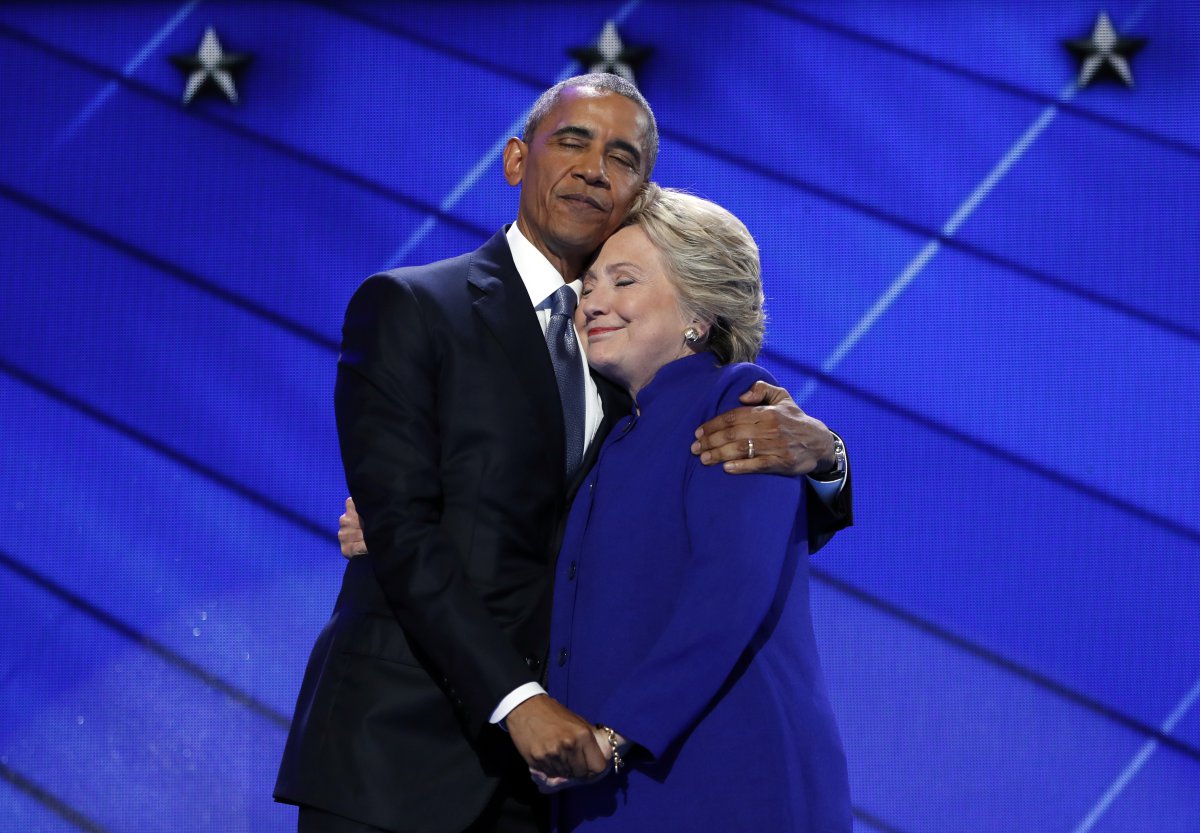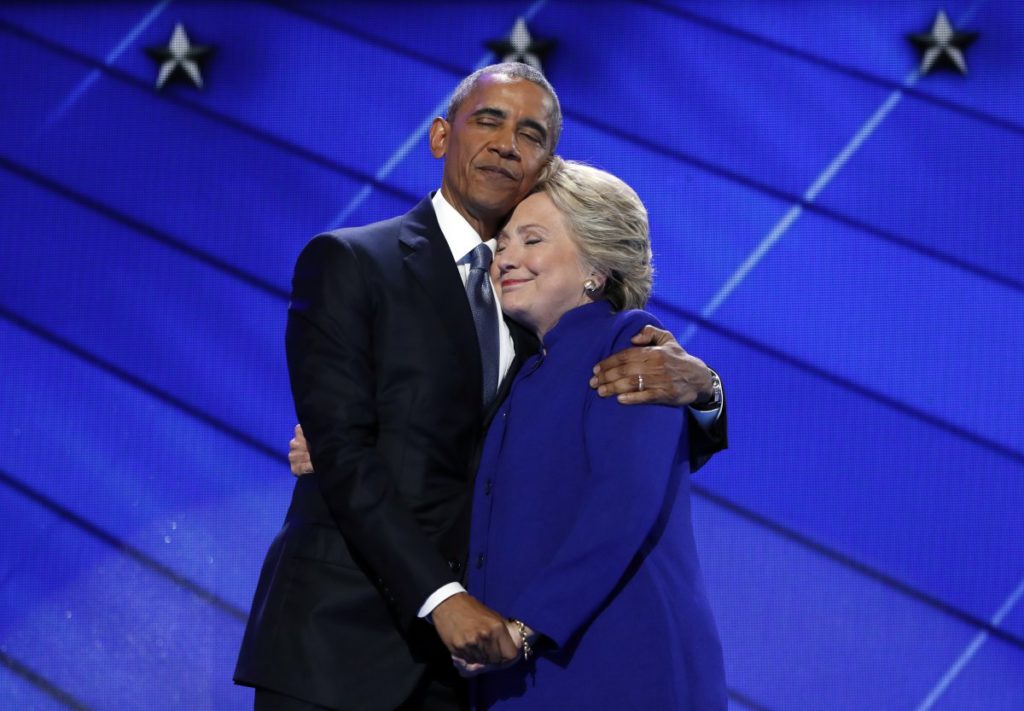
By Barnett Wright
The Birmingham Times

Isabel Rubio, executive director of the Birmingham-based Hispanic Interest Coalition of Alabama, prefers to look on the bright side.
“One thing we know about elections is that things will change,” Rubio said. “The pendulum always swings. It has swung really, really far to the right, and it doesn’t have anywhere else to go but back toward the center.”
Republican Donald Trump was elected the 45th president of the United States on Tuesday, Nov. 8, 2016, in a stunning victory over Democrat Hillary Clinton. The shockwaves felt across the country were felt in Alabama for supporters of both Trump and Clinton.
Randall Woodfin, who served as the Alabama State Director for “Hillary for America,” said he was “shocked and disappointed” but that Trump’s triumph was reminiscent of Barack Obama’s first election to the White House in 2008.
“Donald Trump was able to tap into something very similar to what Barack Obama did in 2008,” Woodfin said. “One, Trump acknowledged that it was a change election. I think Democrats as a whole did not acknowledge that 2016 was a change election, just like 2008.
“The change election was on different ends of the spectrum of change: Obama tapped into hope, and Trump tapped into a 180 of hope—fear. A dance that goes along with fear is anger. Trump combined fear and anger, which motivated people to support him and allowed him to win.”
Phillip Brown, a longtime Trump supporter and chairman of the Alabama Minority Republican Party, said he also saw similarities between Trump this year and Obama in 2008.
“When Obama was getting hundreds of thousands of people turning out for his rallies, those of us who didn’t think he was the best choice would say that that turnout would not equate to voter turnout—‘They are just kind of curious about this black guy,’” Brown recalled. “They were doing the same thing on the other side with Trump. Thousands and thousands of people were turning out, but ‘They just want to see him act crazy and act a fool.’ Somebody even told me on Facebook that rally attendance does not equate to voter turnout. We see what we want to see, and we ignore what we want to ignore.”
Polls were wrong
Some may have underestimated Trump, Brown said.
“People took his crassness, his bluntness, his apparently unchecked expression as a weakness, and they did not equate the fact that America found that refreshing,” he said. “People are sick and tired of asking a politician a question and having them look you in the eye to see what they think you want to hear before they answer the question. [Trump] would respond immediately and tell you what was on his heart.”
Brown also explained why he thought the polls—which had Clinton winning—were so far off: “Nobody was willing to say they were going to vote for him … and then they came out of the woodwork. Do you know that kind of abuse I took for supporting Donald Trump? Not everybody is willing to sign up for that kind of abuse.”
Brown, who backed Trump from the start of the New York businessman’s candidacy, said the president-elect did what few other Republicans did.
“Donald Trump made it a point to reach out to the black community,” Brown said. “Do you know what swung them over in the last few months? When he asked the question that made everybody gasp: ‘What do you have to lose? If the Democratic Party has helped you this much over the last 50 years and this is where you are now, what do you have to lose?’”
The Minority Vote
Still, according to a CNN exit poll, an overwhelming number of blacks did not vote for Trump.
Some 88 percent of black voters supported Clinton versus 8 percent for Trump, who said repeatedly that black communities are in the worst shape ever.
That’s not as big a margin as President Obama’s victory over Mitt Romney in 2012: Obama locked up 93 percent of the black vote to Romney’s 7 percent.
Clinton’s hold over Latinos was even more tenuous, despite Trump accusing undocumented immigrants of being criminal aliens and promising to deport them. Only 65 percent of Latinos supported her, while 29 percent cast their votes for Trump. In 2012, Obama won 71 percent of the Hispanic vote, while Romney secured 27 percent, according to CNN.
Soul-searching
Rubio said another bright spot was the “incredible Latino voter turnout.”
“We know we had a lot of Latinos that voted for Trump,” she said. “I know for a fact that we registered more people than ever to vote. And we had more Latino interest in this election than ever before. I think that momentum is only going to continue to build. If you look at how the Latino population is growing in this nation, I think we will have a real awakening of that sleeping Latino giant that people continue to talk about in the 2020 elections.”
Rubio added that the election outcome is a “really golden opportunity not just in Alabama but particularly in some of these Southern states to build and strengthen black-brown coalitions where the Latino community has really grown so much over the last 15 to 20 years. We’ve got to strengthen the coalition between the black and brown communities because we share interests, and it is important to do that legwork to strengthen our work together.”
Woodfin said the Democratic Party has to do some soul-searching.
“Over the next day, over the next week, over the next month, there will be an autopsy done on the [Clinton] campaign and an autopsy on the Democratic Party,” he said. “Right now we don’t have, nationally, that charismatic leader who can motivate and communicate a message that will bring millennials, gays and lesbians, African-Americans, Independents, and Hispanics together, but we have an opportunity to do that. We have to build a bench that pulls people who not only consider themselves Democrats but also consider themselves independents together to share a different message about the direction of our country.”
CNN and the Associated Press contributed to this report.



